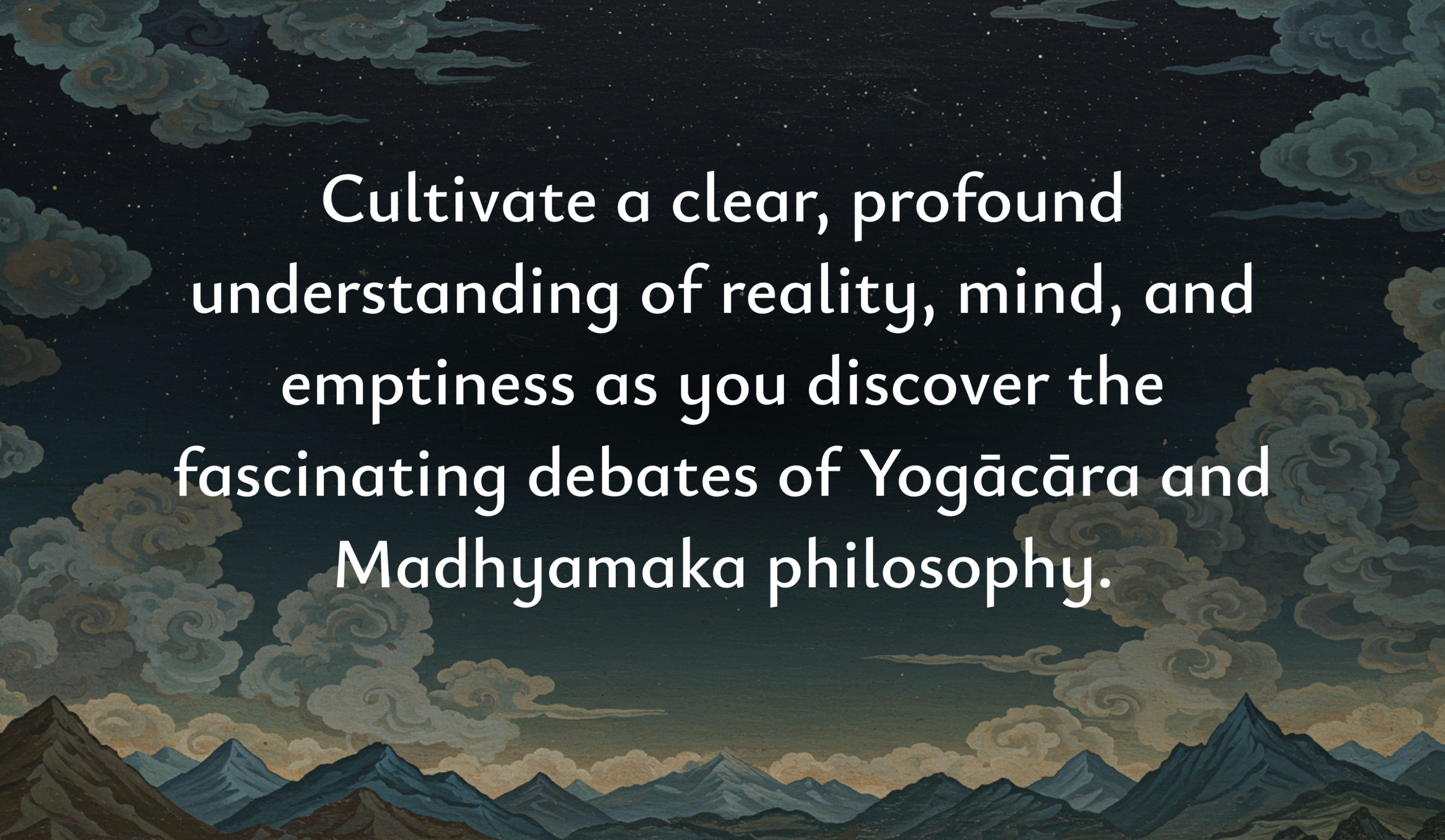
THE WISDOM ACADEMY PRESENTS
Buddhism As Philosophy: Yogacara & Madhyamaka
An Online Course with Mark Siderits
This course is a deep, rigorous exploration of the two most influential schools of Mahāyāna Buddhist philosophy—Yogācāra (Mind-Only) and Madhyamaka (Middle Way).
Taught by leading philosopher Mark Siderits, you’ll explore the core arguments, debates, and unresolved questions that have shaped Buddhist thinking about reality, consciousness, and emptiness for centuries.
The course is based on Mark’s book Buddhism As Philosophy, the most popular book for undergraduate courses on Buddhist philosophy.
This course will give you the conceptual tools and philosophical rigor to test and deepen your own understanding of Buddhist teachings.
If you want to test, clarify, and deepen your understanding of Buddhist philosophy at its highest level, this course is for you.
This course is in self-study mode, so you can learn at your own pace. Enrolled students have lifetime access.
Tuition: $247
Includes lifetime access for enrolled students!
After enrolling, check your email for a welcome email with instructions on how to take the course. When you enroll in any Wisdom Academy course, you agree to our terms of use. Enrolled students have lifetime access to course materials. Wisdom is a 501(c)(3) nonprofit. Your tuition supports the creation of more courses like this one. Thank you! For more about our terms, please see the Wisdom Academy FAQ.
By exploring some of the most fascinating arguments and unresolved questions that have unfolded over the centuries and shaped Mahāyāna Buddhism, you’ll develop the ability to:
• Distinguish between subtle philosophical positions that often get blurred in practice
• Read and interpret classical texts with far greater insight
• Follow, reconstruct, and critically evaluate Buddhist viewpoints on reality, emptiness, mind, causation, and perception.
• See how critical reasoning and meditative practice reinforce each other
• Avoid common philosophical and practical pitfalls (such as nihilism, dogmatism, or intellectualization)
• Articulate your own understanding of emptiness, mind, and reality with confidence
• Experience life in fresh, profound new ways as a result of exploring the nature of reality
Tuition: $247
Includes lifetime access for enrolled students!
After enrolling, check your email for a welcome email with instructions on how to take the course. When you enroll in any Wisdom Academy course, you agree to our terms of use. Enrolled students have lifetime access to course materials. Wisdom is a 501(c)(3) nonprofit. Your tuition supports the creation of more courses like this one. Thank you! For more about our terms, please see the Wisdom Academy FAQ.
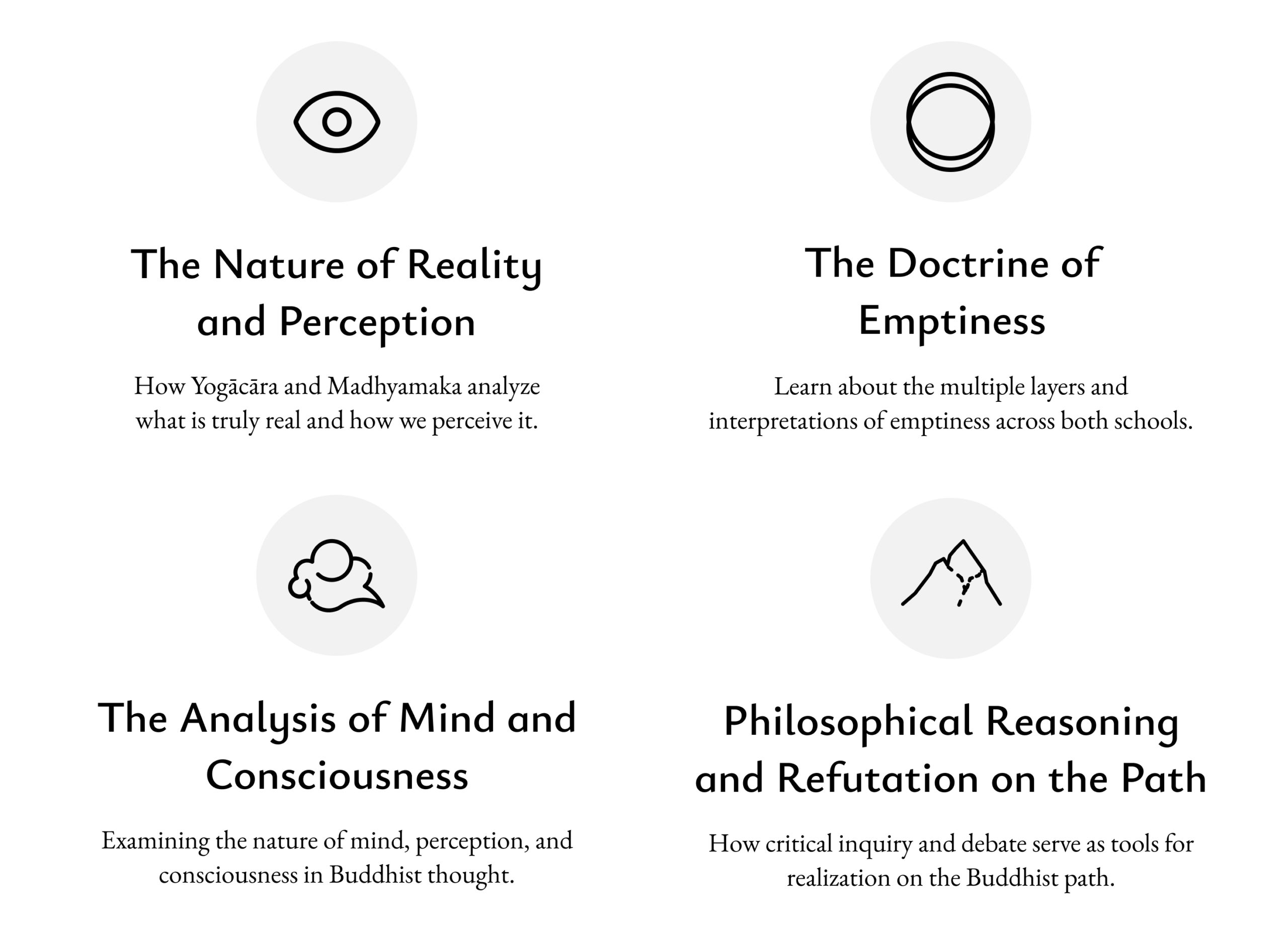

Your Course Includes
HD videos
Curated readings
A forum for discussion and support
Lifetime access
You may feel familiar with terms like emptiness, mind-only, or two truths, but lack clarity about what these concepts mean at the highest philosophical level or how they relate to each other.
Or perhaps you’ve encountered these ideas in practice, but find the reasoning behind them obscure, incomplete, or contradictory.
After taking this course, you will:
• Have a much more nuanced and precise grasp of the Mahāyāna philosophical landscape.
• Understand how the debates between Yogācāra and Madhyamaka clarify what is at stake in Buddhist analysis and practice
• Be able to spot hidden assumptions in your own thinking, move through philosophical paradoxes with greater ease, and connect deep study directly to your practice.
The result is a deeper, more grounded confidence in both your intellectual and experiential understanding of Buddhist philosophy.
Tuition: $247
Includes lifetime access for enrolled students!
After enrolling, check your email for a welcome email with instructions on how to take the course. When you enroll in any Wisdom Academy course, you agree to our terms of use. Enrolled students have lifetime access to course materials. Wisdom is a 501(c)(3) nonprofit. Your tuition supports the creation of more courses like this one. Thank you! For more about our terms, please see the Wisdom Academy FAQ.

Lesson 1: Buddhist Idealism
Dive into the idealist interpretation of the Buddha’s teachings. Mark introduces Yogācāra, the “Mind-Only” School that reframes perception through the lens of consciousness-only metaphysics. He then juxtaposes its idealist principles with those of the realist Abhidharma schools.

Lesson 2: Size and Other Problems
Traverse the various hurdles to accepting the Yogācāra system. Explore how Yogācāra tries to deconstruct the subject–object duality. Find out about atomism—the infinite divisibility argument against external objects—and the solipsism dilemma that arises if we deny the existence of external objects.

Lesson 3: The Trisvabhāva Theory
Immerse yourself in the Mind-Only School’s extraordinary “three natures” theory. You’ll explore emptiness’ inexpressible character, nondual cognition, and why this Yogācāra philosophy resonates with transcending the illusion of self. Mark discusses the three levels of reality—the merely imagined (parikalpita), the dependent (paratantra), and the perfected (pariṇiṣpanna) natures.

Lesson 4: Reflexivity of Cognition
Explore the Yogācāra school’s fascinating take on reflexive cognition (svasaṃvedana). Find out how Dignāga navigated the paradoxical notion of self-aware cognition, why reflexivity might be a way to overcome the subject–object dichotomy, and how these ideas connect abstract philosophical ideas to the lived experience of mindfulness. You’ll also learn about reflexive cognition, in which every act of awareness inherently illuminates itself.

Lesson 5: Madhyamaka Emptiness
Navigate the Madhyamaka paradox of asserting emptiness while not positing a definitive truth. In this lesson, you’ll discover the Middle Way school’s critiques of Abhidharma and Yogācāra, as well as its philosophical efforts to avoid falling into the extremes of either eternalism or nihilism. Mark also discusses Nāgārjuna, conventional and ultimate truths, and the implications of the Madhyamaka assertion that all dharmas are empty.

Lesson 6: Nāgārjuna’s Argument from Origination
Enhance your understanding of key ontological themes in Madhyamaka philosophy. Find out how Nāgārjuna refuted the four possible explanations for how things come into existence. Mark also explores the allegation that cause and effect are interdependent, the problem of anthropomorphism in metaphysics, and the unresolved tension between Madhyamaka’s emptiness doctrine and the need for a coherent account of origination.

Lesson 7: Candrakīrti’s Strategy
Delve into Candrakīrti’s argument to dismantle opposing views on causation. You’ll explore Candrakīrti’s attempts to refine Nāgārjuna’s arguments for emptiness. Mark summarizes Candrakīrti’s specific positions on topics such as the flaws in the “distinctness” hypothesis, the paradoxes of simultaneity in cause-and-effect relationships, and the broader implications of Madhyamaka’s rejection of ultimate truth.

Lesson 8: The Madhyamaka Philosophy of Mind
Where Yogācāra claims that the external world is just an illusion, Madhyamaka suggests that the inner world of consciousness is as well. Refine your understanding of the distinction between conventional and ultimate reality as well as the role of cognition in Buddhist practice. You’ll also learn key arguments from Nāgārjuna, Candrakīrti, and Śāntideva.

Lesson 9: Madhyamaka as a Middle Path
Find out how Madhyamaka can be seen as a “middle way” system straddling two extremes of eternalism and nihilism. Mark discusses Nāgārjuna’s and Candrakīrti’s approach to intrinsic natures and the challenges of defining ultimate reality without falling into contradictions.

Lesson 10: The Point of Refutation
Examine what the deeper meaning of all this philosophical disputation might be for Madhyamaka. Learn about the enduring value of philosophical inquiry in Buddhism while avoiding the trap of becoming entrenched in debate just for debate’s sake. Mark delves more deeply into the interplay between philosophy and meditation and how Madhyamaka might help practitioners move beyond theoretical disputes to achieve liberation.
Inspired by Siderits’ renowned book Buddhism As Philosophy, this course is designed for those with a curiosity about the philosophical dimensions of Buddhism—ideal for
• Students studying Buddhist philosophy, comparative religion, or related fields;
• Practitioners who want a better understanding of important Buddhist philosophical topics;
• Advanced practitioners and teachers seeking to deepen their understanding of Buddhism thought beyond basic Dharma study or meditation instruction;
• or anyone ready to deepen their intellectual engagement with these timeless ideas.
Tuition: $247
Includes lifetime access for enrolled students!
After enrolling, check your email for a welcome email with instructions on how to take the course. When you enroll in any Wisdom Academy course, you agree to our terms of use. Enrolled students have lifetime access to course materials. Wisdom is a 501(c)(3) nonprofit. Your tuition supports the creation of more courses like this one. Thank you! For more about our terms, please see the Wisdom Academy FAQ.
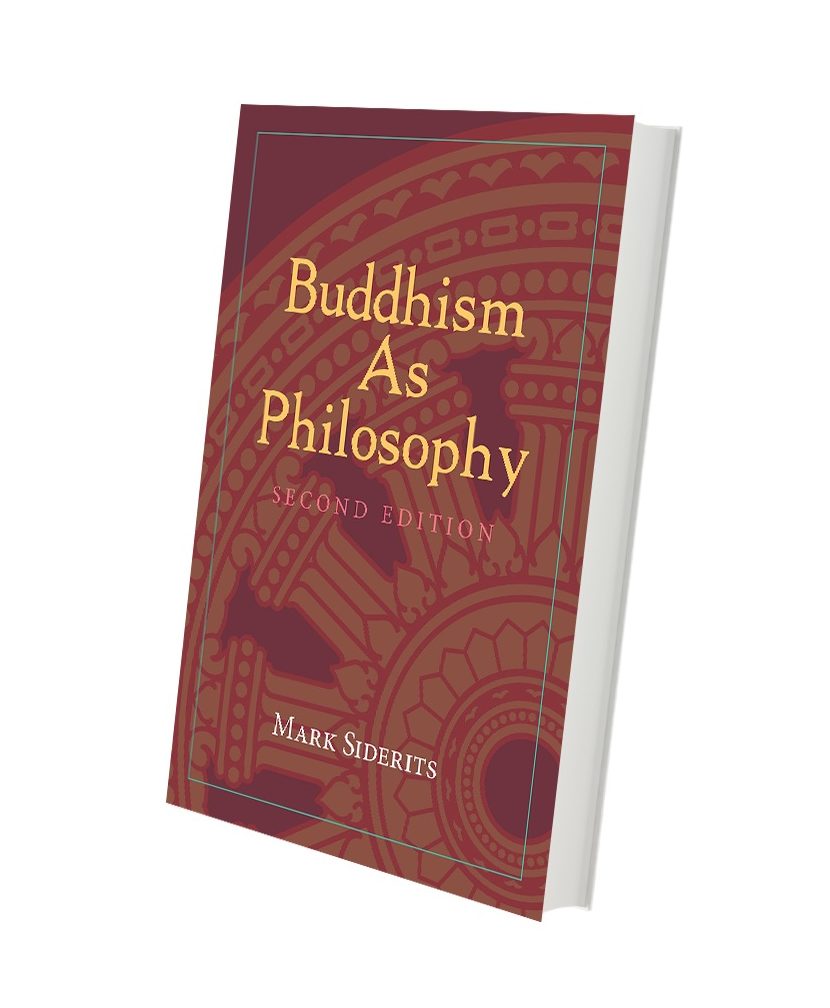 Buddhism As Philosophy
Buddhism As Philosophy
“Since the publication of the first edition of Buddhism As Philosophy, the need for such a book has only grown…more undergraduate programs are teaching Buddhist philosophy and looking for accessible materials that still do justice to the tradition’s intellectual complexity…The book teaches students how to do philosophy at the same time as it teaches them the particularities of Buddhist philosophy. Siderits moves fluidly from translations of primary texts to their explication and evaluation, both modeling expert philosophical methodology and pausing to explain to students how philosophical argumentation works.”
—Malcolm Keating, Yale-NUS College
Learn more and get the book here.
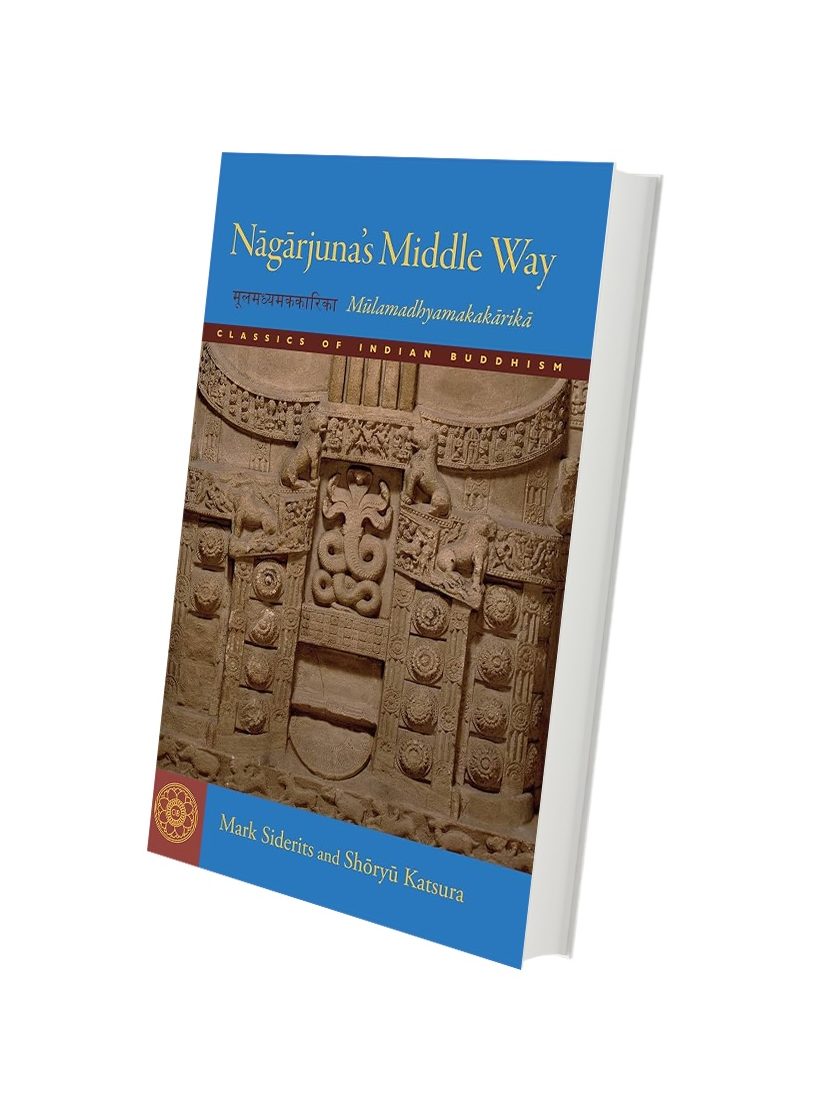 Mark Siderits is also co-translator of
Mark Siderits is also co-translator of
Nāgārjuna’s Middle Way
Nagarjuna’s renowned twenty-seven-chapter Fundamental Verses on the Middle Way (Mulamadhyamakakarika) is the foundational text of the Madhyamaka school of Mahayana Buddhist philosophy. It is the definitive, touchstone presentation of the doctrine of emptiness.
Tuition: $247
Includes lifetime access for enrolled students!
After enrolling, check your email for a welcome email with instructions on how to take the course. When you enroll in any Wisdom Academy course, you agree to our terms of use. Enrolled students have lifetime access to course materials. Wisdom is a 501(c)(3) nonprofit. Your tuition supports the creation of more courses like this one. Thank you! For more about our terms, please see the Wisdom Academy FAQ.
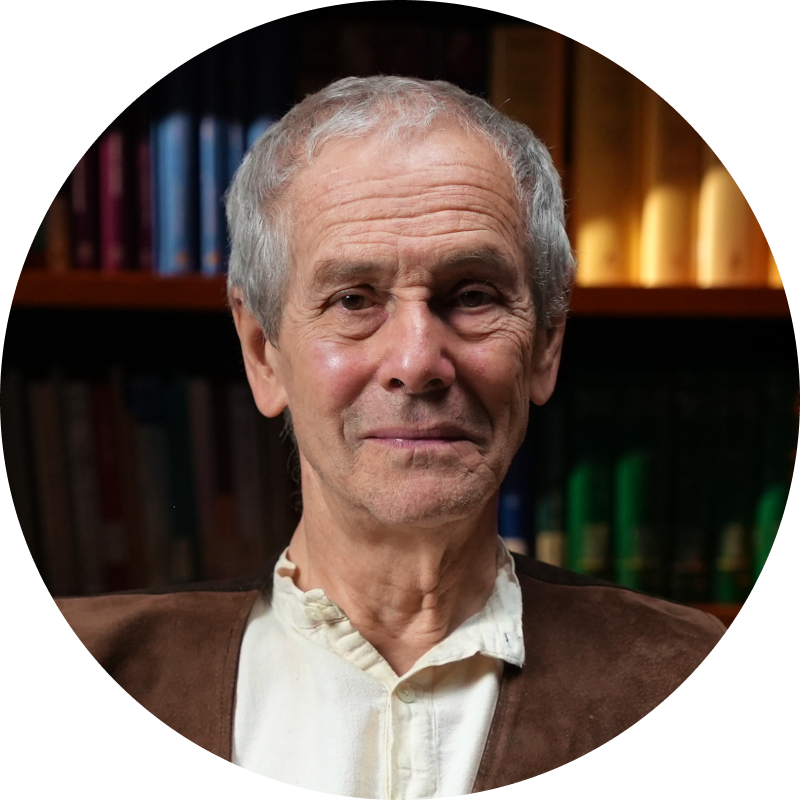
Mark Siderits was trained in Asian and Western philosophy at the University of Hawaii and Yale University. He has taught both Asian and Western philosophy, for many years at Illinois State University, and most recently as Professor of philosophy at Seoul National University, from which he retired in 2012. He is the author or editor of five books and has published numerous articles on a wide variety of subjects in Indian Buddhist philosophy and comparative philosophy. Much of his work aims at building bridges between the classical Indian tradition and contemporary philosophy, by using insights from one tradition to cast light on problems arising in the other. He is the co-translator of Nāgārjuna’s Middle Way.
The Wisdom Academy is the leading provider of high-quality online courses about Buddhism and meditation.
The Wisdom Academy was founded in 2016. Since then, we’ve grown to be the leader in online Buddhist learning, with over 50 courses and thousands of students enrolled.
In the Academy, dedicated students come together with beloved teachers to learn authentic philosophy and practices for awakening.
Our courses offer teachings on Dzogchen, shamatha, mahamudra, vipassana, mindfulness, jhana, and much more. The clear, progressive structure of the courses will support you in learning about the profound philosophy and practices of the Dharma. You’ll discover the vivid and immediate ways that the teachings can create more ease, joy, and freedom in your daily life. Click here to learn more and explore our course catalog.
![]()


